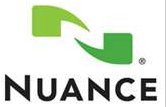 Successful deployment of conversational customer service solutions is always a team effort. That’s why the Enterprise Division of Nuance has long depended on system integrators and resellers as go-to-market partners. With its introduction of the “Connections Partner Program”, the company redefines resources, support structure and rules of engagement to expand revenue opportunities for long-time platform providers (like Avaya, Genesys, Huawei and Cisco) and their “sub-channels” (meaning their network of resellers).
Successful deployment of conversational customer service solutions is always a team effort. That’s why the Enterprise Division of Nuance has long depended on system integrators and resellers as go-to-market partners. With its introduction of the “Connections Partner Program”, the company redefines resources, support structure and rules of engagement to expand revenue opportunities for long-time platform providers (like Avaya, Genesys, Huawei and Cisco) and their “sub-channels” (meaning their network of resellers).
From a product standpoint, there are two foundational components to Connections. It starts with a set of prepackaged Call Steering applications, tuned for specific vertical industries. They are provided through Nuance’s “Natural Language Portal,” which is a Web-based resource that provides access to run-time, code, tools and standards for partners/developers to build conversational Call Steering applications quickly. The second major component of Connections amounts to an update of the “Fast Start” program, which was had its debut in mid-2011. As Opus Research described here at the time, Fast Start sped up the deployment process for a fixed set of vertical applications of Call Steering by limiting the number of options (such as call destinations or instances that required complex disambiguation. The nice thing about such a programmatic approach is that the systems actually “learn” over time, so that Nuance could constantly add new instances based on real world experience.
Overseeing the evolution of Connections is Amy Livingstone in her formal role as director of channel development and programs. Working with Dan Nordale, VP of Marketing for Nuance Enterprise, she has spent the past several months fine tuning program elements to bring more natural language-driven opportunities to partner sales teams. That includes the “block and tackle” issues of identifying named accounts in geographic regions for teams to approach, refining the core offering to suit specific market opportunities, investing in training and support programs for the identified partners, in short attaching structure and rules of engagement for the partner channel.
From Opus Research’s point of view, this is a timely and vitally important offering from Nuance Enterprise. It is a fresh approach designed to overcome reluctance that potential partners have displayed in the past as they approach customers that want to make their self-service and assisted self-service more conversational. It shortens the time it takes to bring up a natural interface. More importantly, it introduces an element of certainty surrounding division of labor, costs and revenues among partners. They can entertain new opportunities knowing in advance that Nuance plans to take a support role (rather than assert primacy) when designing and deploying conversational solutions. Because we are entering an era where customers and end-users expect human-like interactions with automated systems, it’s important for the team members involved in providing solutions to be able to get out of their own way.
Categories: Articles

 NiCE Interactions 2025: Agentic AI, Better Data, and a Whole Lot of Partnership
NiCE Interactions 2025: Agentic AI, Better Data, and a Whole Lot of Partnership  Getting It Right: What AI Agents Actually Mean for Customer Support (Webinar)
Getting It Right: What AI Agents Actually Mean for Customer Support (Webinar)  Beyond the Basics: How AI Is Transforming B2B Sales at TP
Beyond the Basics: How AI Is Transforming B2B Sales at TP  Five9 Launches Agentic CX: Toward AI Agents That Reason and Act
Five9 Launches Agentic CX: Toward AI Agents That Reason and Act